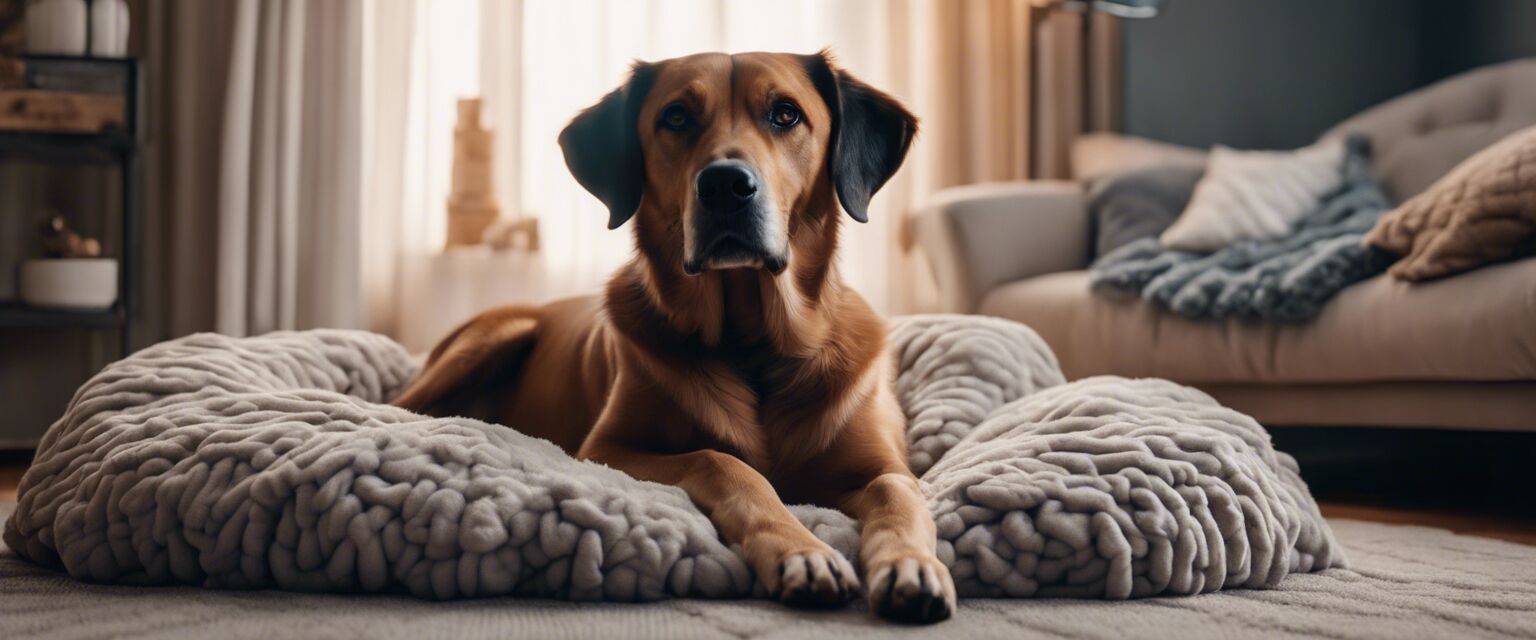
Anxiety and stress management
Managing anxiety and stress in senior dogs is essential for their well-being. As dogs age, they may experience various changes, both physical and cognitive, that can lead to stress. In this article, we will explore effective techniques and products available in the market to support anxious senior dogs.
Key Takeaways
- Senior dogs may exhibit anxiety due to physical and cognitive changes.
- Understanding your dog's unique needs is important for effective management.
- Various products and techniques can help alleviate anxiety in senior dogs.
- A combination of comfort, cognitive support, and training aids is often most effective.
Understanding senior dog anxiety
Anxiety in senior dogs can stem from a range of factors, including health issues, environmental changes, and a decrease in cognitive function. Common signs of anxiety may include:
- Excessive barking
- Pacing or restlessness
- Destructive behavior
- Increased clinginess
- Avoidance of social interactions
Techniques for managing anxiety
Implementing various techniques can help manage anxiety in senior dogs. Here are some effective approaches:
1. Create a safe space
A dedicated, quiet area can provide comfort for anxious dogs. Consider using:
- Soft bedding
- Calming toys
- A consistent routine
2. Incorporate regular exercise
Physical activity is crucial. Short, frequent walks and gentle playtime can help alleviate anxiety. Make sure to:
- Adjust intensity to your dog's ability
- Use a leash harness for safety
3. Use anxiety-reducing products
Several products can assist in managing anxiety. Hereâs a brief overview:
| Product Type | Description | Examples |
|---|---|---|
| Calming Aids | Effective for creating a calming effect | Herbal supplements, calming sprays |
| Comfort Accessories | Help in providing physical comfort | Soft beds, anxiety wraps |
| Training Aids | Assist in behaviors modification | Clickers, treat dispensers |
Understanding cognitive changes in senior dogs
As dogs age, they may experience canine cognitive dysfunction (CCD), similar to dementia in humans. This can lead to increased anxiety. Being aware of cognitive changes helps you provide better support.
Signs of cognitive dysfunction include:
- Disorientation
- Changes in sleep patterns
- Increased anxiety or fearfulness
Helpful products for managing anxiety in senior dogs
When seeking to help your senior dog, consider these categories of products:
Additional techniques to calm your dog
The following techniques can also support your efforts:
1. Incorporate music or sound therapy
Playing calming music or using dedicated pet sound therapy can help relax your dog.
2. Practice positive reinforcement
Using rewards for calm behavior can encourage your dog to feel more secure.
3. Engage in gentle training exercises
Keeping your dog's mind active with simple training can help alleviate anxiety. Use:
- Basic commands
- Short training sessions
Key considerations for caregivers
Being patient and understanding is important for managing an anxious senior dog. Here are some things to consider:
- Monitor your dog's behavior for signs of stress.
- Consult with your vet about any behavioral changes.
- Be consistent in your approach to training and care.
Pros
- Improved quality of life for your dog
- Stronger bond between pet and owner
- Reduction in stress-related behavior
Cons
- Time and effort required for implementation
- Possible trial and error with products
- Direct costs associated with purchasing products
Conclusion
Managing anxiety and stress in senior dogs can significantly enhance their quality of life. By understanding the techniques and products available, caregivers can better support their furry companions through their golden years.
Additional resources
For more information on supporting senior dogs, consider exploring these categories:









